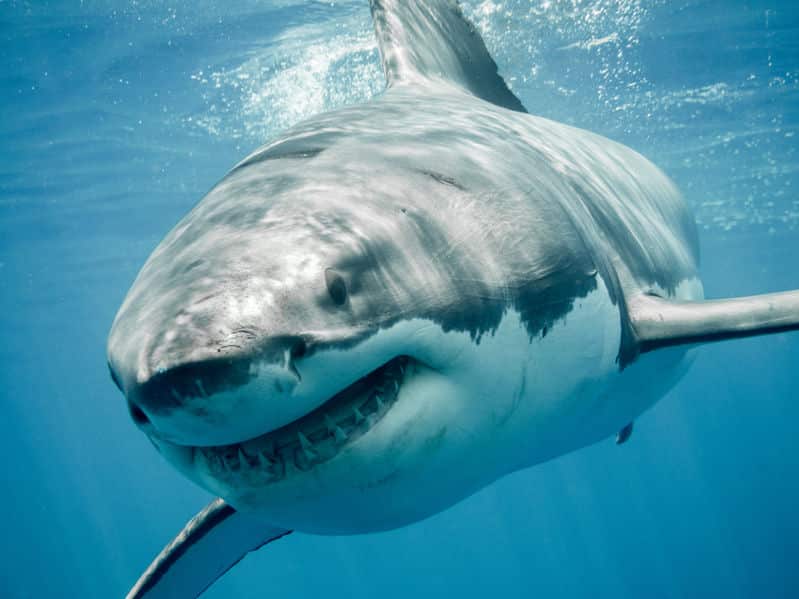By Sean Zucker –
“I’m familiar with the fact that you are going to ignore this particular problem until it swims up and bites you in the ass,” Matt Hooper warns Mayor Vaughn in Jaws. Leaving 2020, there may be no better metaphor for the Covid-19 pandemic than a politician ignoring the logical warnings from a scientist of an imminent attack by a killer shark of epic proportions. Of course, coronavirus was the ultimate villain of 2020, though sharks to their credit made a push for relevancy in the race.
The Florida Museum of Natural History’s International Shark Attack File (ISAF) reports that 2020 was the deadliest year for shark attacks since 2013. Sharks killed a recorded ten people in unprovoked attacks, a seven-year high and a 400 percent jump from the 2019’s two deaths. Additionally, there were three deaths in provoked attacks for a total of thirteen shark related deaths.
The ISAF defines an unprovoked attack as “an incident in which an attack on a live human occurs in the shark’s natural habitat with no human provocation of the shark,” opposed to a provoked attack which “occurs when a human initiates interaction with a shark in some way. These include instances when divers are bitten after harassing or trying to touch sharks, bites on spearfishers, bites on people attempting to feed sharks, bites occurring while unhooking or removing a shark from a fishing net and so forth.”
Admittedly, getting whacked by a shark is still a long shot, like almost 4 million to 1. But in what the ISAF refers to as “an unusually deadly year,” the jump in attacks raises several questions with no clear answer, especially given the limited access people had to the ocean last year. Well before summer and beach season were on the horizon, Covid restrictions closed most beaches in the country and many worldwide as officials strongly opposed congregating on the few that remained open.
“With far fewer people traveling to sunny shores for beachside vacations in 2020, logic would have it that means fewer people spent as much time in the ocean, be it to swim, surf, snorkel or scuba dive,” wondered Forbes lifestyle contributor Duncan Madden following the release of the ISAF’s report. “By the same logic, fewer people in the water should therefore equate to fewer encounters between humans and sharks over the course of the year.”
Madden’s logic held true for the overall amount of shark encounters. Non-fatal shark attacks saw a comforting decline in 2020, at 57 globally. The number is well below the yearly average of 80, ISAF notes.
While the U.S. continued its long-standing inclination as the worldwide leader in unprovoked shark attacks, it saw a significant drop from the prior year. The 33 confirmed unprovoked shark bites were a 19.5 percent drop from the previous year’s 44. Even Florida, who’s 16 cases represent nearly half of the U.S. total, saw a significant plunge from its most recent five-year annual average of 30 incidents.
So, if Florida managed to clean itself up a bit, what’s to blame for the sharp overall rise of deaths by shark attack? It’s unclear. Maybe 2020 was just an anomaly; there were yet unrecognized environmental factors in play; or perhaps the relative lack of beach activity brought sharks closer into shore. Maybe those who insisted on visiting beaches were just particularly reckless. Could it be as simple as sloppier, less self-aware beachgoers becoming pallet cleansers for the great whites of the world. Or maybe they’re also still upset about Jaws 4: The Revenge and aching for a modern reboot.













